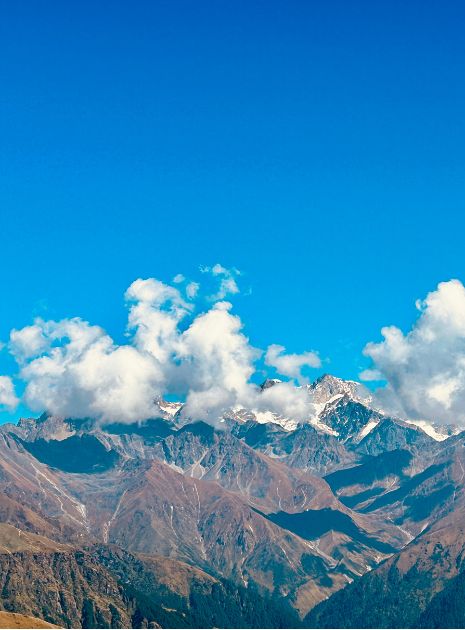Betalghat
Betalghat is a small town tucked quietly in the folds of the Nainital district. Not many people talk about it. And maybe that’s what makes it special. The Kosi River flows beside it, soft and steady, shaping not just the land but the lives of the people here.
Betalghat is a small town tucked quietly in the folds of the Nainital district. Not many people talk about it. And maybe that’s what makes it special. The Kosi River flows beside it, soft and steady, shaping not just the land but the lives of the people here.
Here, time doesn’t run through the clock. It runs by means of the sound of birds, the mild ringing of temple bells (मंदिर की घंटियाँ), the low voice of cows (गायें) heading out to graze, and the hush of the wind. No one rushes. Everything moves at its very own tempo.
Betalghat may have a population of over 21,000, but it feels more like one big joint family (संयुक्त परिवार). Shopkeepers know everyone by name. Doors are left open. Kids call out to passing uncles on scooters. Strangers don’t live strangers for long.
The houses right here are easy fabricated from stone or brick with tin roofs that rattle lightly within the breeze. Clothes dry on strings tied among trees and walls. Mothers call out to their children as the sun dips behind the hills (पहाड़).
It’s a kind of life that city people often forget even exists.
The road to Betalghat winds through forests and valleys. It’s narrow, sometimes bumpy, and public transport is limited. After sunset, jeeps and buses disappear. The last bit of the journey needs patience (धैर्य) and steady hands on the steering wheel.
But once you cross the old bridge and enter the town, you don’t just arrive. You feel like you’ve reached somewhere. Somewhere that matters. Somewhere that remembers who you are.
Most people in Betalghat still live close to the land. Rice (धान), wheat (गेहूं), and seasonal vegetables grow in neat fields along the hills. During monsoons, the soil smells rich and full of life. In winter, it gets dry and cracks under your feet.
Men and women head out early with sickles (दरांती) on their shoulders and lunchboxes full of roti (रोटी) and pickle (अचार). Some take care of cows and goats. Others climb nearby slopes to collect fodder. It’s hard work but it has rhythm. And dignity (गरिमा).
Some work as shopkeepers, teachers, or jeep drivers. Many young people go to nearby cities for jobs, but they return during festivals bringing back stories, savings, and smiles.
At the heart of Betalghat is a small market. It’s not fancy. No big brand names. But you get what you need groceries, tailoring, medicines, and steaming momos or samosas at food stalls.
And, of course, chai (चाय). Every shop has it. And every cup carries a conversation. About weather, crops, weddings, politics whatever’s on the mind.
Elderly men sit under trees with old newspapers. School kids stop for toffees. No one’s in a hurry. This is a place where even silence feels full.
Education matters here. Betalghat has a government college, a girls’ inter college, and several village schools. You’ll often see children in neat uniforms, holding hands, with water bottles bouncing at their sides.
Education isn’t perfect. Some kids walk long distances to study in bigger towns. But families are trying. Dreams of becoming teachers, doctors, or even something new, like software engineers, are alive and growing.
Homework is done under solar lamps or lanterns (लालटेन). Ambition is quiet, but strong.
Health services are basic. A few clinics try to serve many. For anything serious, families head to Haldwani or Nainital. It takes time. It takes money. But people go, because here, no one is left behind.
Neighbor's help. Villagers raise funds. Jeeps are arranged even at midnight. No one makes a big deal out of it. They just do it because this is how things are done in the hills with warmth, not words.
If you want to feel Betalghat’s heart, visit during Diwali (दीवाली) or Holi (होली). Houses are swept clean. Diyas (दीये) light up windows. Children sing and dance. Laughter flows louder than the river.
Fairs (मेलों) bring people from nearby villages. Music, meals, games, and even a Ferris wheel now and again. But the real magic is within the human beings in the hugs, shared memories, and smiles that need no words.
Change comes slowly here, like the first rain. A new school building. A repaired bridge. A woman is starting a tailoring shop. Young people are opening tuition centres. Some are teaching elders how to use smartphones.
Women’s groups are forming. They’re learning skills, saving money, and starting small businesses. It’s not a loud change. It’s quiet, real, and rooted.
Stay in Betalghat for more than a day, and something shifts in you. You start listening more. Smiling more. Watching the river instead of your phone. Eating slowly. Feeling the wind like it has something to say Because Betalghat doesn’t just show you life, it reminds you how life can be. Simple. Honest. Grounded.
Betalghat isn’t a tourist destination. It’s a lived place. A breathing space. A rhythm you remember long after you’ve left.
If you go, don’t expect big hotels or loud nightlife. Expect birdcalls, tea with strangers who become friends, children playing by the river, and old uncles talking under banyan trees (बरगद का पेड़).
This village doesn’t ask for much. It just gives gently, generously, and in its own beautiful way.
| All Sub Districts | ||
|---|---|---|
| Kaladhungi | Kosya Kutauli | Lalkuan |
| Okhalkanda | Ramgarh | Ramnagar |

Uttarakhand is not simply another country. People here name it Devbhoomi (देवभूमि), the Land of the Gods. And it feels that way. Rivers begin right he......
See Details